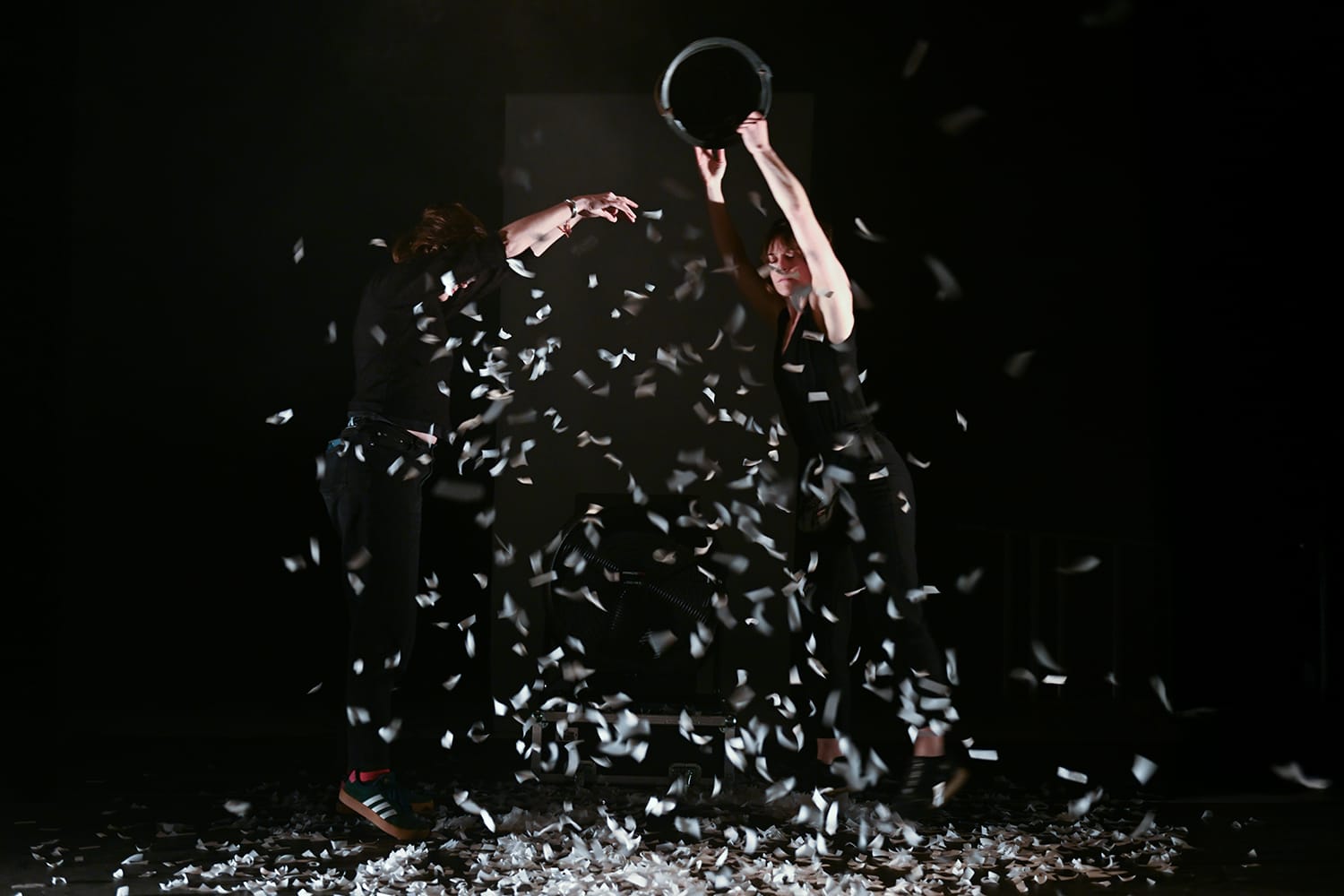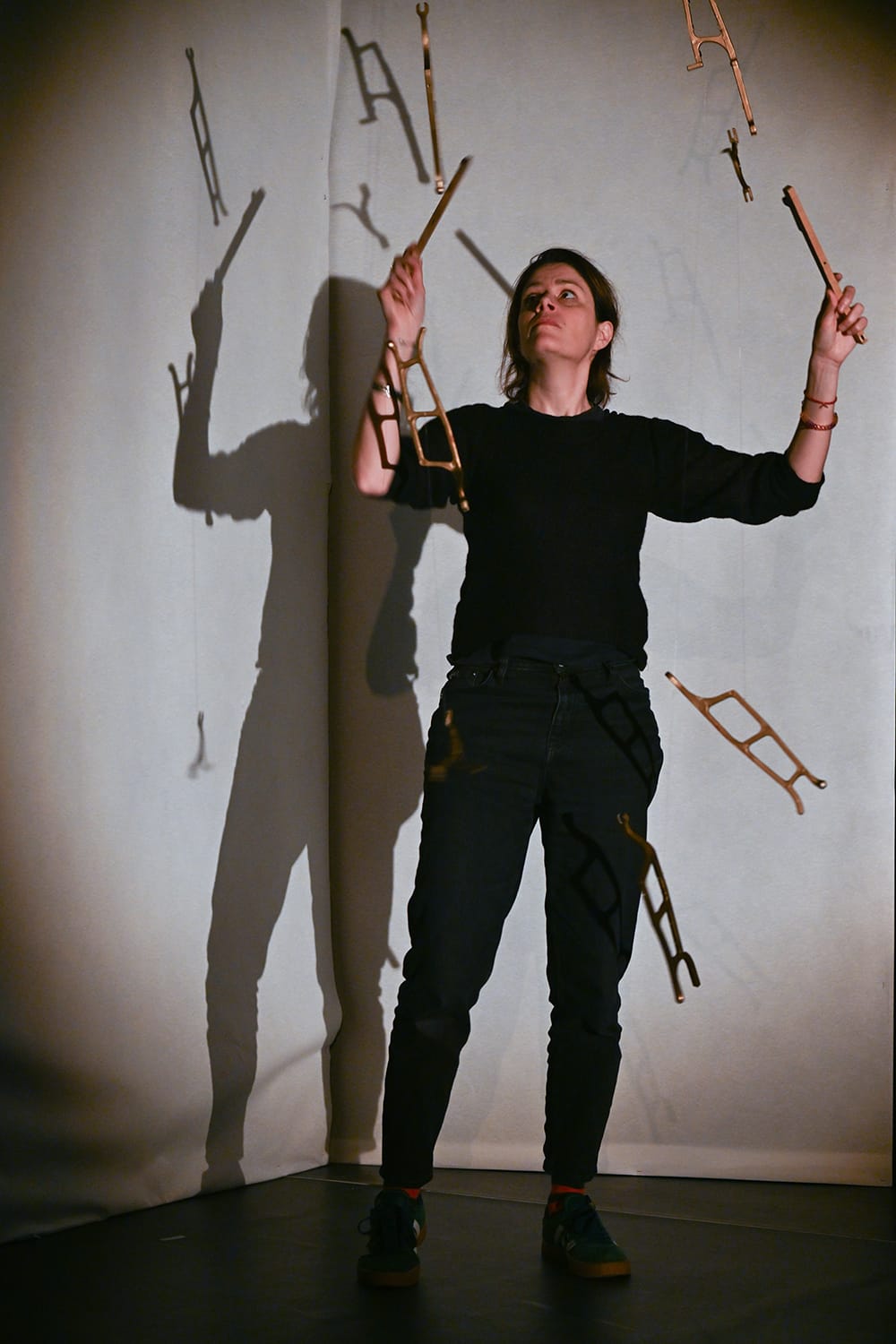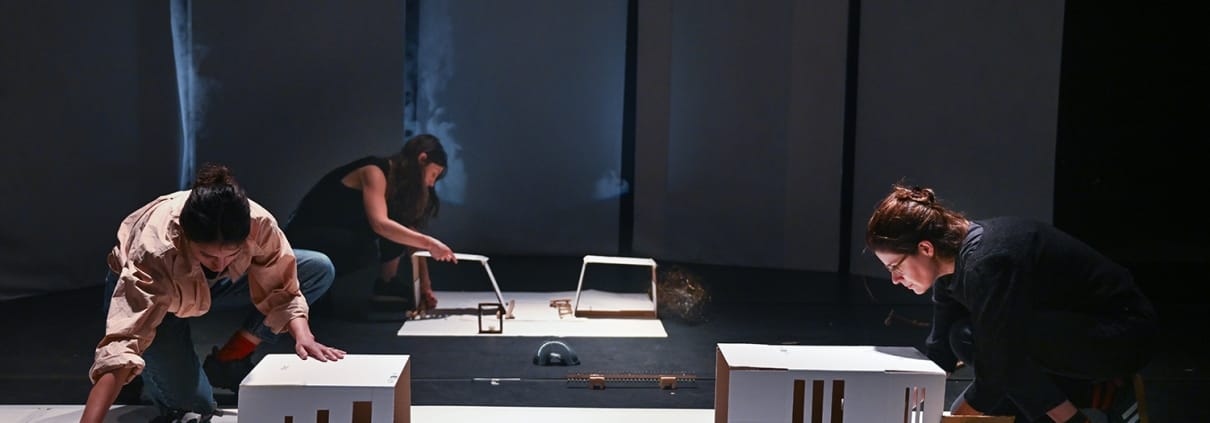Un pays supplémentaire (an additional country)
Play for young audiences and all ages, sound and visual creation
premiered in november 2025
approx. 45 minutes
Claudine Simon : concept, writing, performer, Hervé Birolini : sound design, AnneSophie Berard : set design, Malena Fouillou : performeuse son ; Maeva Prigent : plastic design, Antoine Travert : light, Anthonin Gourichon : technical development, Alix Reynier : technical direction
 Project
Project
This is a concert featuring a unique scenography: a miniature electric train on a circuit on the floor, surrounding the piano.
Objects belonging to the piano (keys, hammers, small mechanisms, springs) or to preparations (clothes pegs, balls, brushes, etc.) are placed on either side.
The train then sets off.
An LED light fixed to the front sweeps across the space, creating a shadow effect on the walls of the room, while a micro-canon fixed to the top amplifies the sounds of the journey.
Objects scattered on the floor take on a completely different form and appearance. The closer they are to the spotlight, the more imposing their shadows become. Little by little, these figures take on the shape of an urban landscape, the projected black touches becoming gigantic buildings that stand out against the walls.
Our position as spectators changes. This miniature train and the phantasmagoria associated with its movement transform us into travellers on an unexpected journey. We’re transported into an astonishing, improbable universe, creating an immediate sense of interaction with the performance.
The music starts from the world of the piano, but is particularly interested in sound territories: the boundaries between note and sound, music and noise, instrumental gesture and movement, what is normalised and what is not, concrete sound and electronics, in a kind of sonic and spatial writing that is akin to cinema for the ear. Games are set up where sound plays tricks on us. It sometimes contradicts what’s happening on stage, leading to situations that can be downright burlesque !
A title, an approach…
Un pays supplémentaire (an additional country) is a reference to a phrase coined by film critic Serge Daney.  This expression sounds like a message to arrouse children’s curiosity.
This expression sounds like a message to arrouse children’s curiosity.
Practising music adds a whole new world to ones life, a realm of emotions and perceptions. It’s also a way of living, seeing, listening and feeling that you can make your own. It’s a very special world that we can make our own.
It’s a bit like when you’re faced with translating a foreign language. When you go looking for formulas and expressions, you very often find an astonishing way of saying things that is specific to that language. These formulas, these unexpected combinations of words for our own mode of expression, our own language, stimulate the imagination. Foreign languages have fascinating ways of making us see and feel differently what we actually say in our own language.They can bring up up cultural, visual and oral references, uncovering new ways of thinking and seeing, a whole baggage of curious equivalents and surprising false friends – in short, another world…
This project aims to lead the children to discover something special, an unusual and more experimental kind of music. This discovery, this encounter, will be brought about by the stratagem of a model train that you can follow with your eyes. It acts on sound and produces cast shadows.
Along the way, the amusing and amazing events, put the children in the right receptive mood. Their field of attention and desire grows, their perception opens up, and they are offered a new way of listening, as an invitation rather than a prescription.
photos et video © Sebastien Jourdan


 rudy decelière
rudy decelière